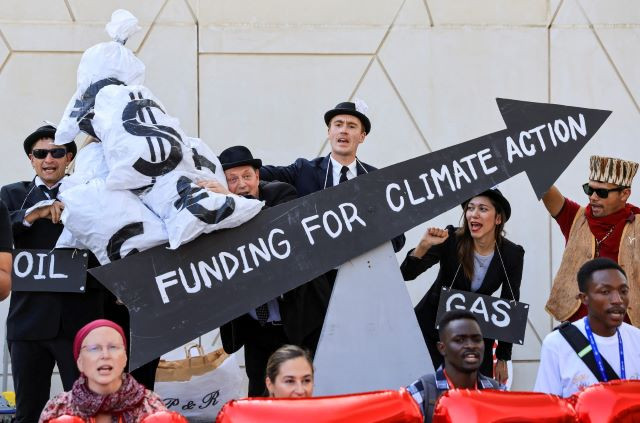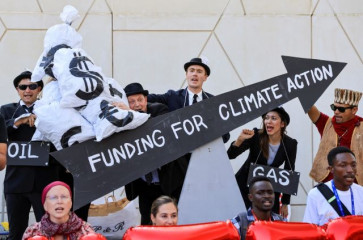Popular Reads
Top Results
Can't find what you're looking for?
View all search resultsPopular Reads
Top Results
Can't find what you're looking for?
View all search resultsGeoeconomic competition hinders Indonesia’s energy transition plan
The competition results in economic fragmentation, where countries opt to cooperate with partners that are more aligned geopolitically, although not always beneficial economically.
Change text size
Gift Premium Articles
to Anyone
G
eoeconomic competition presents a major challenge to Indonesia’s bid for energy transition. Despite the United Nations Climate Change Conference’s (COP28) ambition to triple renewable energy capacity by 2030, conflict over climate financing and protectionism remains an obstacle.
Speaking at COP28 in Dubai, the United Arab Emirates, last November, President Joko “Jokowi” Widodo stressed the urgency of developed countries’ contribution to finance Indonesia’s net-zero emissions goal by 2060. To substantiate this commitment, the Indonesian government and developed countries grouped in the International Partnership Group (IPG) launched the Comprehensive Investment Policy Plan (CIPP) to fund Indonesia's Just Energy Transition Plan (JETP).
Despite Indonesia’s ambitious targets, IPG members did not increase their contributions. The funding commitment from IPG countries for the JETP after the CIPP release remains at US$20 billion. The lack of financing from IPG countries not only portrays the reluctance of developed nations to aid energy transition but also the geoeconomic competition that overruns the global race for renewable energy.
The impact of carbon emissions is global, yet the efforts to curb them are highly fragmented by political blocs. Geoeconomics, the use of economic means to achieve geopolitical objectives, has increasingly shaped financing initiatives in the green sectors.
Renewable energy has become the new arena for geoeconomic competition. During the Hiroshima Summit in May 2023, the Group of Seven (G7) nations unveiled a US$600 billion pledge for the Partnership for Global Infrastructure and Investment (GPI) with an underlying objective to “de-risk” and counter China’s dominance in the clean energy sector supply chains. Similarly, with the new Belt and Road Initiative branding, “small and beautiful”, China also uses sustainable and clean energy sectors as geoeconomic instruments.
This competition results in economic fragmentation, where countries opt to cooperate with partners that are more aligned geopolitically, although not always beneficial economically. Instead of Indonesia, for example, the United States opted to carry out “friendshoring” or relocation of the green technology supply chain to Vietnam, which takes a stronger stance against China.
The preference to deliver development aid based on geopolitical alignment makes financing options more limited for Indonesia. This will make the funding for Indonesia’s renewable energy projects more unattainable.



















